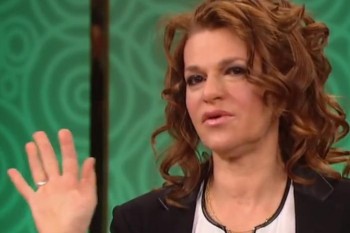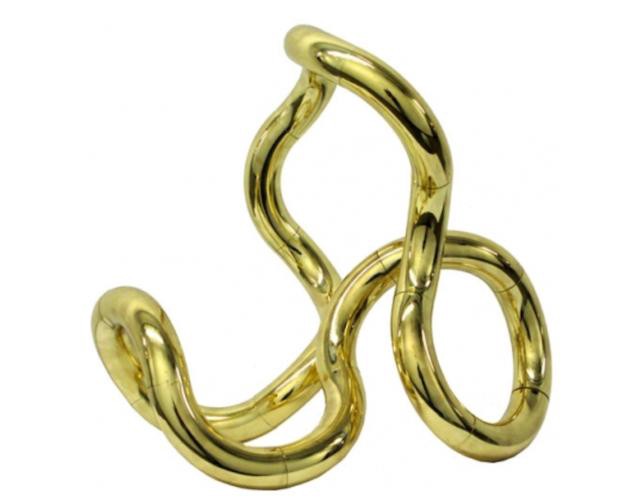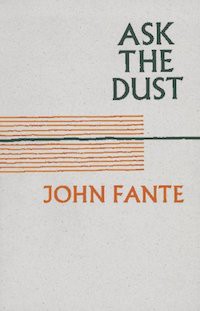Crazy Made-Up Animal Spotted In Crazy All-Too-Real State
Is the legendary chupacabra — the mysterious, cryptid vampire that terrorizes livestock — hanging around outside Houston? If you are familiar with the kind of freaks who live in the Houston area you will almost certainly be nodding your head in agreement, because, FREAKS, but some animal guy says maybe it’s a dingo. You never know, I guess. But if the legendary chupacabra is anywhere, I bet it’s in Texas, where all freak things come from.
As If We Didn't Have Enough To Worry About Already
“Nobody has been arrested or charged in [April’s coordinated sniper] attack at PG&E; Corp.’s Metcalf transmission substation [in which “snipers opened fire on a nearby electrical substation. Shooting for 19 minutes, they surgically knocked out 17 giant transformers that funnel power to Silicon Valley.”] It is an incident of which few Americans are aware. But one former federal regulator is calling it a terrorist act that, if it were widely replicated across the country, could take down the U.S. electric grid and black out much of the country.”
Arguments For Expropriation
“There’s a lot of interest in America in things like early childhood education and how we can intervene early in a child’s life. It would be wrong to conclude that we should give up on all of this, but the amount of change that’s feasible from intervention is tiny — you’re going to be operating on the margins of a much deeper process of social mobility. Modern Sweden, which has very high levels of these types of interventions, has not managed to increase rates of social mobility above that of medieval England, which had none of these government interventions. Or look at post-revolutionary China. Despite the fact that Mao tried to radically remake Chinese society into a new egalitarian system — killing upper-class people, sending them to Taiwan and Hong Kong — surnames that had a relatively high status before the revolution have a relatively high status today. We’re never going to have the kind of society that has the actual social mobility that people are looking for in the United States.”
Arthur Rankin, Jr., 1924-2014
An old man writes: “I don’t want to belabor the point or look back with any kind of revisionist history on how wonderful it all was, because a lot of it was frankly terrible and, even with all the annoyances and vexations we’re forced to confront each day as everyone figures out how to negotiate this strange new world with its ever-shifting boundaries and notions of what is acceptable, we are still considerably better off in these times than we were back then, but there was something special about living in an age where you had three main sources of televised entertainment and if you missed an episode of seasonal programming, that was it, it was gone until the next year. The holidays felt more like holidays: intense moments of joy that were by their very nature temporary. And as a child at Chrismas — the last time in your life when your sense of wonder and love is genuine and uncomplicated — back in those days, the stop-motion specials of Rankin/Bass were dotted i of Holiday Excitement, even the later ones where Rudolph went down to Florida in July or Roger Miller was singing about a long-eared donkey. There was something intrinsically jubilant about them, something so powerful that now, years later, flipping past them in our thousand channel world, there is still the odd moment where you see the scary bird from the one where Rudolph has to save the New Years baby and for the briefest of seconds your scarred and jaded heart feels the soft and soothing expression of a happiness it has never known since you were small. I can’t imagine how the kids today, with their DVRs and their ‘I want it now’ attitudes and helicopter parents who will put aside whatever is going on in their own lives to cater to their little precious — “ At this point the old man started to ramble in an even more uninteresting way than he had been doing in the anecdote just related, so we’re going to edit for space, but in any event, Arthur Rankin, Jr., maker of memories, died on Thursday. He was 89.
I Know It's Not a Real Holiday and You're Definitely Above It But Maybe Look At These Cards If You...
I Know It’s Not a Real Holiday and You’re Definitely Above It But Maybe Look At These Cards If You Want, I Don’t Know
by Jeva Lange
I am so sorry to do this to you, I really am, especially with THAT day creeping ever closer, but if you do have any interest in, you know, THAT day, and/or interest in the Talking Heads, you’re going to want to take a look at what this Portland art gallery is doing. THAT DAY is still a massive fraud perpetuated on us by the greeting card industry and affiliated commercial concerns, but this is pretty cool. [Via]
Our lives with the "stupid masses of people out there that are on that fuckin' social media"

In a new interview over at Wag’s Revue, Sandra Bernhard discusses The Terrible Stupid Horrible Way We Internet Now.
Honestly, because of the Internet, because of people’s stupidity, because of people’s either fake political correctness, or the right-wing fake concern about people using language that they would use in their bedroom (but in a derogatory destructive way), it’s not even worth saying certain things anymore because you just don’t want it taken out of context, and you don’t wanna defend it because the minute you have to start defending it, that means you’re explaining your work, and the work that I do can’t be explained, and I don’t wanna explain it. I’ve never used a word about anybody that didn’t have many, many layers and meanings and double-entendres, and that wasn’t laced with irony. So a few things that I might have said ten, fifteen, twenty years ago pre-social media, I wouldn’t even bother saying today. I’m like, I’m not gonna be your guinea pig. Fuck it. I just won’t.
Because you don’t want to be put in the position where —
’Cause I don’t wanna explain — I don’t wanna explain to the freakin’ stupid masses of people out there that are on that fuckin’ social media twenty-four hours a day, diggin’ around, lookin’ for shit, bored, lost, resentful, angry, tapped out, empty, haven’t picked up a book or listened to a good song maybe in their entire lives, and now they have a platform to go, ‘Blah blah blah.’ I don’t wanna fuckin’ know about it. I don’t wanna engage with these people. I don’t wanna defend myself to these people, so fuck these people; I’m not fucking putting myself in that position. No.
Not long ago, I had posted some sort of a comment [on Twitter] about gun control, and, oh honey, the creeps and the cretins came out of the fuckin’ woodwork, and I was like, ‘No. I’m done.’ Why do I have to put myself in harm’s way? If these people want their guns, they want their shit, they want to go out there and shoot it up and kill each other… I’m sorry they’re killing innocent people, that’s what’s outrageous to me, but you can only spread yourself so thin. And it’s so absurd now, it’s so intense, it’s so deep, it’s so crazy, and everybody can weigh in, and everybody’s nuts, and everybody’s off the fuckin’ rails, and I’m just tryin’ to stay out of the shit, and go quietly about my fuckin’ shit in the venues where I feel safe, where people come to hear it, and so be it if that cuts down on some of my free-wheeling style. It doesn’t really, though, because I’m still freewheeling in my shows, which is the only place I ever was anyways. I don’t wanna be freewheeling on the internet. I don’t know who’s out there taking the shit in.
Being A Writer™
by Matthew Wade Jordan
I attended my first writer’s conference in 2012. Those ten or so days among meadows and butter yellow cottages were rewarding but fraught. The conference was rewarding in that it was fruitful. I met a lot of great people, collected from the craft courses and workshops some useful habits and things to consider, and was introduced to contemporary writers I’ll be reading, and hoping to run into again, for years. (“Oh, I know her,” I can’t wait to say. “She was, um, cruel in workshop.”) I left the conference with a much clearer sense of what I would need to do if I wanted to turn this hobby of mine into something more than a hobby. That’s valuable, you know? And, I saw a moose.
It was fraught, however, because I felt, perhaps naively, that the stakes were high. I’d been–I’ve been, I should say, dwelling on the distinction–writing fiction for several agonized, fickle years. I’ve little more to show for all this time and effort than the faith of some fine people (which does mean something), a “Not No” or two from agents, and a handful of kindly worded rejections from respected journals. The shameful hours I’ve spent boring my poor, dear friends with the inessential details of this dim, selfish pursuit; the bar tabs I’ve picked up suddenly, guiltily, to account for those hours, as if twenty-five dollars not spent is sufficient to make an evening in my company sufferable. Acceptance to the conference was a big deal for me. Writing is important to me, the habit of it, the vague sense of its potential, and yet I often feel that I know nothing about it. I don’t have an MFA. I didn’t major in English. I’m not a part of any “literary scene.” The conference was a chance to meet and learn from people who care about the same things I care about, who know what the hell they’re doing. They might even know why they’re doing it.
I imagine that most people who arrive at writing as a hobby, and then as a craft, and then as a career, begin the journey from a place of buzzing, appreciative idealization. They are, as Saul Bellow put it, readers “moved to emulation.” Young writers, like Little Leaguers half over a Major League railing waiving their dads’ old mitts, are fans. They’ve read Great Books — one at least — and been Changed and Inspired. They perceive in literature, in its expression of human hopes and limits, everything they’d like to be, yet they respect it as something beyond their capabilities, something larger and greater than themselves. They view its craftspeople in an according light, and continue to, until one day they find that they themselves are practiced enough, and lucky enough, to raise their eyes from the page, look around, and see a landscape of peers — lucky enough to look at themselves and admit that their aspiration has been realized. In that moment, I have to imagine that the accomplished writer must also admit that they are not an embodiment of twinkling celestial genius. The craftspeople they so admired, whose achievements they’ve modeled their lives after, must be, essentially, just like them, mustn’t they? Ambitious people, perhaps with some native talent, who’ve developed a particular skill. To think otherwise would be to disengage from the facts — these now-accomplished writers have known themselves their entire torrid, boring lives. They had the clap once, or were afraid they did, anyway; their husband, a sad, slow-witted man they love because of his love for them, opened his veins but failed to die (he’d taken ibuprofen, not aspirin, the dumbshit); they act weird when they drink too much; they’re addicted to pull-tabs. The accomplished writer is not something distinct from and beyond the rest of us. The accomplished writer is a person who, simply enough, has the fine luck of having mastered a beloved craft.
So the aspiring writer misapprehends what it is to be a writer. Writing isn’t a state, it’s an act. Being a writer is doing writing.
If you have your doubts, I suggest this exercise:
1. Go to a book signing, and listen attentively to the people in line around you. Listen to the lady with the canvas tote bag ahead of you, to the blowhard in large plastic eyeglasses behind you. Listen until you hear their reasons for being there.
2. Attend a writer’s conference. Sit down across the table from someone you admire. Chat with them as you would with anyone else. (Heads up: There’s a good chance they’ll try to sleep with you.)
Writing is craft, not magic, although it’s the magic of the very best craftspeople to convince us otherwise. Being a writer is doing the work and business of writing. It’s fair to compare a gifted writer to a gifted doctor, engineer, carpenter, sculptor. It’s a pretty understandable job — at least once you’ve put in the effort to understand it.
Nevertheless, perhaps because we’ve all come up in this aspirational ecosystem, because we’re all spattered and dazed by it, because we are all, at root, fans, writers often talk about writing, about being a writer, as if it really is something special. Even amongst themselves, I learned at the conference, some writers — emerging writers at communal tables, established writers behind a podium — are prone to speak of their craft as a blessing or burden, as something mythic, as native and precarious to the authenticity of one’s being as their own beating heart. It’s not a job description, it’s a calling. (Or worse: a personality type.)
The best analogy I can think of is a grizzled, whiskey drinking detective in a formulaic police procedural — and his awareness of himself as a grizzled, whiskey drinking detective in a formulaic police procedural. You’ve seen this film I’m sure, or another a lot like it: Problematic But Somehow Likable Man Is Brilliant At Work Yet Destroys Everything He Touches™. (“I’m a cop, you son of a bitch!” or “Everybody who gets close to me gets hurt… I’m a cop!”) The themes are the same with Writers™, the burning too brightly, the bondage to grand ideals, the resignation to tragedy, but the specifics are typically different. The violence, for one. Writing really needn’t be violent. Another difference: writers, who are nearly as anxious about spoken words as written ones, are generally better than movie cops at avoiding cliché. Many are, anyhow.



This obsession with the job and the identity structures supposedly behind it comes through in a great deal of literary fiction — there are a fuckton of novels about writers. A partial list of work (that I love) in this vein: Sophie’s Choice, Nazi Literature in the Americas, The Savage Detectives, 2666, Pale Fire, Wonder Boys, Crossing to Safety, Misery, The Lesson of the Master, Hunger, Herzog, Tropic of Cancer, Ask the Dust, The Ghost Writer. If you throw in the campus novel — which I would argue is fair game as the university is the paying gig of so many writers — the list metastasizes.
Perhaps these, or some of them, are examples of “writing what you know.” Maybe it’s difficult to write your fourth or fifth, or even first, novel and not turn to the romance of your own frustration and toil. But to focus hundreds of pages of characterology on a writer suggests a belief on the part of the author that this character is fascinating enough to warrant the focus, engrossing enough to carry the novel.
This endorsement of the interestingness of Writers™ extends beyond the fictive. (A day or two on certain magazines’ Twitter or Tumblr feeds will verify this for you.) Even some very successful writers, people for whom the comforts of their accomplishments are the commodities of everyday life, comment on writerly existenz in grand language, blurring the lines of writerly work and self. Eugene Ionesco: “A writer never has a vacation. For a writer life consists of either writing or thinking about writing.” W. Somerset Maugham: “We do not write because we want to; we write because we have to.” E.L. Doctorow: “Writers are not just people who sit down and write. They hazard themselves. Every time you compose a book your composition of yourself is at stake.”
These quotes, of course, emerge into naked day from a forest of context. They were called for, somehow. Perhaps they’re from an essay on craft; maybe some coy, fire-eyed darling at a cocktail party, a paperback twisted in lissome hands, was simply dying to know what it’s like to actually be such a strange and compelled creature. They could be a memorable sliver of a lecture delivered to the paying customers of a writer’s conference like the one I attended. These are not inappropriate sentiments. They are, however, articulations of their authors’ public understandings of what a writer is. They imply a category distinct, a sense that doing writing is a particular form of being, and that this particular form of being is, for some reason, remarkable.
I don’t know. I’m skeptical.

Two weeks ago I overslept and was late for work. It was cold, though not near as cold as January mornings should be, and, out the door, I stuffed my hands into my pockets. Cold air burned the nude skin on my wrists. I stopped for espresso knowing that it would make me later still but needing to sooth my addiction to caffeine. Being addicted to caffeine makes me feel urbane. I drank the espresso too fast and it spilled down my chin. I was wearing a scarf (wearing a scarf also makes me feel urbane) and the espresso stained it. The scarf belongs to my wife. She got it for Christmas some years back from her mother, who is dying slowly in a nursing home. Her illness has made her ball one fist very tightly. Every time we visit her I, or somebody I love, cries, or leaves overwhelmed by all the misery crammed into and abandoned at that reeking hospice, or both. I thought of how angry my wife would be that I wore this scarf, this scarf, and then stained it. I thought her anger at some unknown future date was better than espresso on my shirtfront all day that day. I thought to set myself a reminder to have the scarf dry cleaned, and to never mention any of this to my wife. I now was even later for work, and flustered by the spilled espresso, and I walked as quickly as possible down 14th St. toward Metro. Young mothers and nannies pushed strollers filled with chubby infants dressed in the wonderfully bright clothes small children get to wear. Middle-aged daycare attendants walked slowly, leading ropes held by groups of pre-K children, top heavy with puffy hooded parkas, six to a side, a dozen or more to a rope. Baby trains always get me. I smiled at a little girl with a big head of curls who was looking at me while we waited for the walk sign. One of the day care attendants smiled at me. They must see this, how people love small children, all the time. Doesn’t it get sickening, like the same delicious food again and again? Like Turkish delight in, uh — ? What book was that? A man getting a breakfast muffin or something at Subway swung the glass door out into the foot traffic, almost hitting me, and a great pink rage flew up. How people living in a city can be so inconsiderate, and I don’t even mean discourteous, when at all times they’re twenty feet at most from another human being, is beyond me. Does proximity blind us? You’d have to be blind to throw a glass door wide into a crowded sidewalk. I almost told this asshole all about what a fuckstick he is but then I saw he was one of the guys from the halfway house down the block. I actually didn’t see this so much as guess it from the shabbiness of his workboots and the lines on his face, deep as waves on a great blue lake. So I let it go. Poor guy. Who knows what chain of bad luck and bad decisions landed him there? Why am I so quick to anger? Why am I so quickly disappointed? Why does each and every quotidian disappointment seem like an affront? Why does each affront make me want to identify and destroy its cause? Will the distance between the world I inhabit and the one I’d prefer always, always hang before me like a carrot slick with rot? I waited at a crosswalk for a few seconds and weighed the risks of jaywalking. Before I stepped off the curb and into the street, I looked both ways. I looked both ways again. I distrust my ability to establish fact from observed phenomena. I looked again to my right and stepped out into the street. This is America. The car that would kill me would come from my left. On the street’s other side I walked past a restaurant (I just had an awful time spelling restaurant) that offers a mangled pastiche of contemporary cuisine. $29 New York Strip Steak; $14 Buffalo Chicken Sandwich; $8.50 Hummus & Oven-Warmed Pita. The restaurant’s name is Hutch. The inimitable smell of McDonald’s French fries was in the air. There isn’t a McDonald’s for miles. Where’s the nearest McDonald’s? My grandmother used to have collectible McDonald’s drinking glasses with images of Mayor McCheese and Grimace on them. Everything else in her home was tasteful, restrained and quiet. Had she ever eaten at McDonald’s? How did she get those glasses? Did she get them for her grandchildren thinking we did or would love Mayor McCheese, as a Senior Vice President for Marketing at McDonald’s had known we would? I do love Mayor McCheese. I love my grandmother. I ought to call her more. If I did, I could ask her “Whatever happened to those glasses?” I walked across a small plaza where a small group of black men with bullhorns and paperboard placards occasionally congregates to promote a bellicose, anti-Semitic, and homophobic form of Christianity. “If King James was a faggot — “ I’d once heard one scream into a bullhorn before I skittered away as fast as possible, sensing danger. I rounded the waist-high concrete wall that anchors the vaulted glass canopy that covers the escalators that lead to the Metro station’s mezzanine level. At the head of the escalator stood a young man, maybe seventeen, maybe nineteen, in a flat-billed Cincinnati Reds hat and a dark brown leather jacket. He was talking to another young man who was leaning over the wall. A girl about their age stood next to the kid in the hat and, together, they blocked the entrance to the escalator. I stood behind them for, I don’t know, two seconds before adopting the posture I reserve for when I’m outrageously put out. Four, maybe five, seconds later, I say “Excuse me.” I could hear the anger in my voice, and maybe he could, too, because he turned to me, rolled his eyes and sneered in the sort of dismissive scowl one sees on high school girls on TV. “Fuck you, herb,” he said, and turned back to his conversation. I imagined gripping the black rubber handrails of the escalator for leverage and kicking him as hard as possible in the small of the back. I imagined the heel of my dress shoe leaving a welling burgundy crescent in his skin. I imagined his thin body contorting unnaturally backward like a reed cane, quick and supple, flexing before the corrective strike lands. I imagined him flying face-first down the escalator’s gnashing metal stairs. The girl grabbed his elbow, and made him move aside, and I stepped onto the escalator. As I walked down the escalator steps I imagined his impact on their jagged edges and his rough tumble down to the mezzanine. I imagined his leather sleeve being caught in the stairs’ grinding teeth and his terror as he realized he would lose that arm, at least, and his abjection and his fervent, repentant wish that he could go back just a few seconds and not be such a piece of shit. Around the time I was swiping my fare card, I killed my fantasy. I took deep, mindful breaths. Why am I so quick to anger? Why is everything an affront? Would I have become so irretrievably angry at a person dressed as I dress? Who speaks as I speak? Are the overt and subtle artifacts of societal aesthetics steering my perception of the world? Is that a problem, if those perceptions are never acted upon? How might somebody abandon everything they know? Warm yellow LED lights indicated my train wouldn’t come for another three minutes and as I waited for the train I cataloged the things about myself I would change, if such change were available to me. The kid in the Reds hat and his polite female friend walked past me. I was shocked, and watched them as if they weren’t possible. He was supposed to be a bloody, whimpering tangle on the mezzanine. On the train I typed an email to myself.
Subject: personal essay?
Body: idiot thinking on metro. does imagination mean anything?
My employer asks that all new hires take a test. The results of my test recommend that people talking to me “Be Brilliant. Be Brief. Be Gone.”
I have yet to dry clean my wife’s scarf.
The other day I saw that email, bold and black, unopened. A couple days after that I got down to the work of transmuting a thing I thought into a thing I could sell. That’s being a writer, I guess. I’d like very much to be interesting, but to think that I am is to disengage from fact.
Matthew Wade Jordan contributes to Shitty New Yorker Cartoon Captions.
New York City, February 3, 2014

★★★★ Wrapped in a thick blue-white veil, the winter solemnly renewed its commitment. The snow had quickly stuck to everything, reclaiming its lost ground, tracing the tree branches all the way out to the buds. Someone pushed a snow shovel along a walkway, clearing a dark open strip, and in a few minutes it had been whited over again. Lumps of slush slid down the north windows, along with running droplets. Snow bounced on the canopy of the stroller as it bumped through the slush, the flakes finding each other and gathering into bigger and bigger wads. The chains on bus wheels left slashes across their tire tracks. Cold wetness was seeping into one of the ordinary boots from somewhere; the rubber-bottomed ones would have to come out of storage. On Broadway, slush and oil floated together in a deep curbside puddle. Sparrows were zipping frantically around the inside of the station at 59th Street. Downtown, the snow was blowing into the subway entrance at same angle as the pitch of the stairs, all the way down to the landing. The sidewalks required a teetering, penguin-y gait, to keep the center of gravity directly over each foot as it planted. A garbage truck with a plow on it crossed Prince Street, trailing a reeking cloud of smoke. The freight elevator had a smoldering smell of its own. The snow never hesitated or subsided, but kept falling even from a pink-tinted sky. Flakes were still flashing in the lights as a setting crescent moon appeared in the west. Thick, fluffy snow covered the mounds of garbage bags, left alone while the trash trucks were otherwise occupied.
Walk Through Frozen Midwestern Sea Caves

For the first time in five years, the National Park Service has declared that lucky Midwesterners can safely experience one of about three reasons to allow winter to still exist (the others are daily soup and warm thick socks): the magical sea caves of the Apostle Islands, off the northern tip of Wisconsin in Lake Superior.
In the summertime, people can kayak out there and paddle through the cave system of a few of the 22 Apostle Islands, which sounds, you know, pretty cool. But in the winter, if it’s cold enough, everything freezes, and that’s when the Apostles get really cool:
By February, an ice bridge might connect Sand Island [one of the Apostles] to the mainland. The lake surface is usually a frozen white expanse. Lakeshore cliffs form a crimson red border to this arctic landscape. Pillars of ice extend to the cliff tops where waterfalls have hardened in place. Frozen lakewater encrusts the base of the cliffs. Inside the caves awaits a fairyland of needlelike icicles. The formations change from chamber to chamber and from day to day.
There are two-story icicles in these caves.

The National Park Service has to monitor the caves’ winter-readiness carefully; there are a series of things that need to have happened (or not happened) in order for the NPS to declare the caves “safe, we think, mostly.” Like, the ice has to be at least eight inches thick (if it’s “high quality ice”), and nobody is allowed to have fallen through the ice in the past week. That’s a real no-no. (This is called a “through-ice event” in Wisconsinese.)
But now it’s cold enough! So you can head northeast from the town of La Pointe and walk about two miles on top of a frozen lake to get there. The NPS recommends you bring a ski pole or walking stick. Some other warnings:
“Take ice-picks and know how to use them.”
“The ice formations at the sea caves are beautiful, but they are very large chunks of heavy ice. They can fall at anytime so try not to spend much time underneath them.”
Haha okay! More amazing photos here.
Photos by Rich Hoeg
"the dead Box canyon where my heart lives now"
A recently discovered trove of the poet Christopher Mohney’s late ’90s work gives us another reason to reevaluate both the bard’s canon and the decade during which this part of it was birthed.
